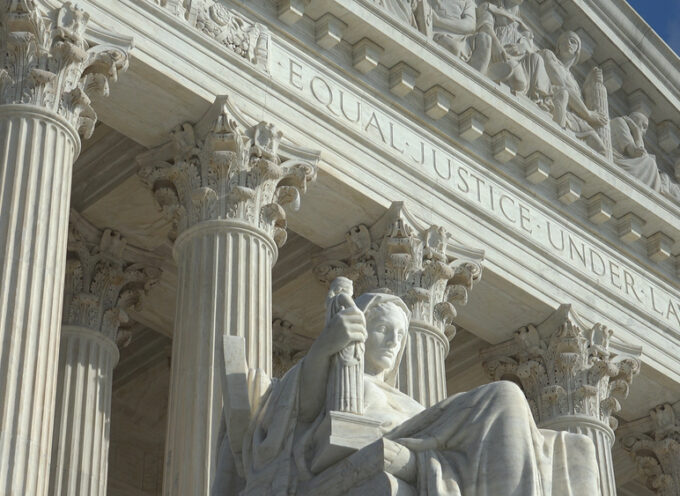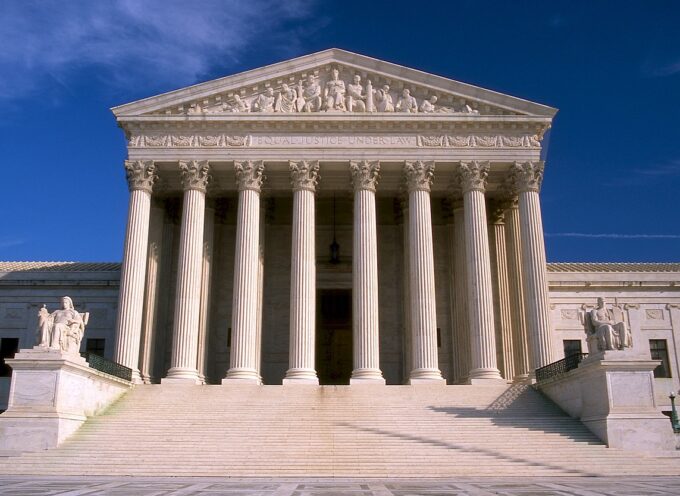3 “You shall have no other gods before Me. (Ex. 20:3)
The first commandment is absolutely foundational, utterly basic, to individual and societal flourishing. The truly good life starts with accepting this command as the rule of life. In Israel’s day, the nations were thoroughly committed polytheists. They viewed their own gods as finite and limited in their knowledge and power, and thought that they could manipulate or appease those gods by means of incantations and rituals. In our day, also we are polytheistic. Although we don’t tend to make statues of our gods and bow before them in a literal manner, we do build metaphorical shrines to our gods—gods such as sex, money, power, and the approval of other people.
How do we identify the “gods” that individuals and even entire communities of people worship? We identify what individuals or communities absolutize or ascribe ultimacy to. Every human being is religious; each of us ascribe ultimacy to something. Further, Scripture teaches that our worship of these gods is done from the “heart.” More than 800 times, Scripture relates religion to the heart and, in Scripture, the heart is the central organizer of our lives. Thus, what or who we worship becomes our life-planner an organizer. Religion begins in the heart but radiates outward into everything we say and do.
This commandment exhorts us to choose decisively for the Lord. This point is repeated throughout the Scriptures. Joshua instructed Israel, “Now therefore, fear the Lord, serve him in sincerity and truth, and put away the gods which your fathers served…” (Josh 24:14). Through Moses, God told Israel, “The Lord our God, the Lord is one! You shall love the Lord your God with all your heart, with all your soul, and with all your strength” (Deut 6:1-9). Likewise, Jesus instructed his disciples to love God more than any other person or thing we are tempted to love (Lk 14:25-33).
This command calls our attention back to sociologist Philip Rieff’s analysis of Western and American culture, an analysis we mentioned in the first installment. Rieff lamented the fact that elite and powerful people have conspired to sever our society and culture from its religious moorings—from God and the transcendent moral framework that flows from his nature and is revealed both in nature and Scripture. Yet, we must point out that, while our society may be increasingly disconnected from God and his moral law, it is by no means irreligious. In fact America’s public square is a playground for false gods.
By end of the middle of the twentieth century, political philosopher Augusto del Noce was arguing that the West was enthralled to the gods of science and sex. When science becomes god, Del Noce argued the result is scientism, a religious ideology in which science is viewed as the primary cultural authority and the only way of gaining true knowledge. Alternatively, when sex becomes god, the result is eroticism, a religious ideology in which sexual freedom is viewed as the primary path to human happiness and flourishing. Scientism, del Noce argued, persecutes religion indirectly by belittling God’s revelation in Scripture, while eroticism persecutes religion directly by forthrightly rejecting the Christian ethic.
More recently, theologian and cultural analyst Carl Trueman has argued that America’s idolatry has coalesced into a phenomenon called “expressive individualism” (EI), as mentioned in the first installment of this series. Having been captivated by EI—even if we have never heard of it—many and perhaps most Americans believe that the purpose of life is to be authentic; that the way for an individual to be authentic is to follow his or her desires wherever they may lead; and that the way for a society to be authentic is to applaud individuals for enthroning their own desires. In other words, EI makes a god out of individual desire.
In the realm of national politics, political scientist David Koyzis has argued pervasively that the modern politics is idolatrous at heart. Socialism tends to make a false god out of material equality; liberalism and libertarianism tend to make a false god out of individual freedom; certain forms of conservatism make a false god out of the preservation of cultural heritage; nationalism tends to make a god out of the nation or out of a specific ethnic group within the nation. To Koyzis’ analysis, I would add that progressivism tends to make an idol out of social progress and the razing of inherited cultural institutions.
In this way, we can see the relevance of the first commandment to our personal lives as well as our society and its cultural institutions. If we as American Christians want to see our communities and nation, thrive, therefore, we must pray that God will send another great spiritual awakening to renew ourselves and our fellow citizens. And we must pray that he will bless our efforts to conform our cultural institutions—families, churches, schools, businesses, forms of entertainment, politics, etc.—to his good law so that we may flourish.
Subscribe
Never miss a post! Have all new posts delivered straight to your inbox.







